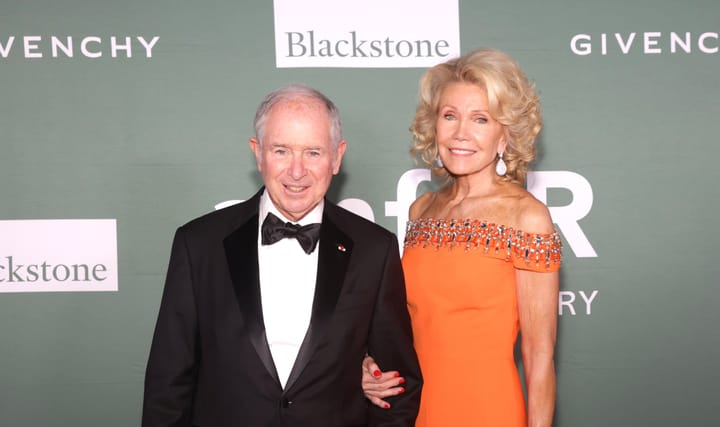Republicans are eyeing control of the U.S. Senate next year, hoping to flip the upper chamber by racking up wins in the November elections. The GOP will need a net gain of either one or two seats, depending on the outcome of the presidential contest, to have a Senate majority.
In West Virginia, Republican Gov. Jim Justice is running for the Senate in a state that former President Trump won in 2020 by nearly 39 percentage points. The next most Trump-friendly state with a key Senate race this year is Montana, which was won by Trump in 2020 by more than 16 points. There, Democratic Sen. Jon Tester faces a highly competitive re-election fight against the likely Republican nominee, businessman and former Navy SEAL Tim Sheehy.

Billionaire Republican megadonors have poured millions of dollars into a pro-Republican super PAC that is backing Sheehy with TV ads, digital ads, direct mail, and other means. The outside spending group, named More Jobs, Less Government, has already spent more than $5 million backing Sheehy, according to Federal Election Commission data, making it by far the highest-spending group in the Montana race.
In Nevada, Ohio, and Pennsylvania, three other states with Senate races that are rated as “toss-up” or “lean Democrat” by the Cook Political Report, pro-Republican super PACs have spent millions of dollars to influence voters, each with the strong majority of their funding coming from billionaires. All three states have Democratic senators facing re-election challenges.
With the exception of Ohio, Democratic super PACs have yet to begin spending at similar levels in these races, though they are sure to also spend millions of dollars this year to back their Senate candidates. As in prior cycles, the Democratic super PACs are likely to be fueled by large donations from billionaires.
One major issue at stake in the 2024 election is the possibility of extending the signature 2017 Tax Cuts and Jobs Act (TCJA) legislation that was passed by congressional Republicans and signed by former President Trump. Many of the bill’s provisions affecting individuals are set to expire at the end of 2025. In a show of the measure’s priority, House Republicans quickly introduced a bill making the tax changes permanent upon taking the gavel last year after the 2022 midterm elections. Earlier this year, Sen. Chuck Grassley (R-Iowa) said that Republicans may decline to pass tax cuts this session, preferring to hold out for the chance to pass a better tax cut package if the Republican nominee defeats the Democrat for the White House.
At a $50 million fundraising event in Palm Beach this past weekend, Trump told wealthy donors, including some billionaire attendees, that he would extend the tax cuts.
A new report from Americans for Tax Fairness (ATF), a coalition of groups supporting tax reforms to raise revenue from large corporations and wealthy Americans, found that since the TCJA was signed in late 2017, the collective riches of America’s 806 billionaires has nearly doubled, rising from $2.9 trillion to $5.8 trillion.
“This staggering runup of billionaire wealth is a sure indicator of who the Tax Cuts and Jobs Act was meant to serve—and who it would go on serving if Republicans succeed in their plan to make its expiring provisions permanent,” said David Kass, executive director of ATF.
Last year, an ATF report found that about 500 individual billionaires increased their combined spending in the 2022 election to more than $1 billion, up from $611 million in the 2018 midterms. In eight competitive Senate contests last cycle, billionaires’ donations favored Republicans over Democrats by a 5-to-1 margin, ATF wrote.
Democrats in D.C. have recently been floating new legislation to address ways that wealthy individuals, including the donors to the Republican super PACs, avoid taxes. Last month, Senate Finance Committee Chair Ron Wyden (D-Ore.) introduced a bill that would close the so-called GRAT loophole that is used by wealthy families to duck estate taxes. In November, Wyden introduced legislation titled the Billionaire’s Income Tax Act that would increase tax rates on individuals with more than $1 billion in assets, or more than $100 million in income for three consecutive years. Wyden’s proposals are in line with President’s Biden’s proposal for a Billionaire Minimum Income Tax, which would require at least 20% income tax on real income, covering unrealized capital gains that go untaxed under the current system as well as traditional taxable income.
A 2021 report by ProPublica found that the majority of the 100 richest Americans used special trusts called GRATs, or grantor retained annuity trusts, to transfer fortunes to their heirs without tax exposure—to the tune of about $100 billion saved in taxes over 13 years. Wealthy political donors on both sides of the aisle were named in ProPublica’s analysis as GRAT users; among those to Senate Republicans, they included the billionaire industrialist Charles Koch and private equity titan Stephen A. Schwarzman.
“The tax code is particularly generous to people living mostly off of their investments because of a number of tax breaks for investment income and because we don’t tax investment wealth at all,” said Amy Hanauer, executive director of the nonpartisan Institute on Taxation and Economic Policy (ITEP). “President Biden has several proposals to fix this, such as the Billionaire Minimum Income Tax, limits on capital gains tax breaks for millionaires, and increasing the stock buyback excise tax.
“Former President Trump focused his tax cutting energy on the very wealthiest—his signature law provided more than $37,000 in tax cuts each year to the wealthiest one percent, people with incomes over $823,000 a year,” Hanauer said.
Montana
A super PAC called More Jobs, Less Government was spun up in 2019 and spent money against Democratic Senate candidate Steve Bullock, then Montana governor, who was defeated by the Republican incumbent Sen. Steve Daines. In the 2022 midterms, the group spent close to $1 million to oppose Democratic House candidate Monica Tranel in her face-off with Republican Rep. Ryan Zinke, who won the general election for the First Congressional District by about three points.
This cycle, the super PAC, which has largely focused on the Montana Senate race to date, has been bankrolled almost entirely by a trio of conservative billionaires whose fortunes come from the investment industry: Ken Griffin, founder and CEO of Citadel, one of the largest U.S. hedge funds, gave it $5 million; Paul Elliott Singer, founder and president of hedge fund Elliott Investment Management, gave $1 million; and Schwarzman, CEO of Blackstone, one of the largest private equity firms in the world, contributed $400,000. Together their donations made up about 95% of the super PAC’s total raised in 2023.
The three are well-known political donors, each having given tens of millions of dollars to federal campaign groups over the past two cycles, according to tallies from OpenSecrets. So far in the 2024 cycle, all three have already donated to the Senate Republicans’ campaign arm the National Republican Senatorial Committee (NRSC), and Griffin and Singer have already given millions to the Senate Leadership Fund (SLF), a super PAC closely aligned with Mitch McConnell.
Calculations by ATF, examining hundreds of billionaires, found the trio’s net worth grew spectacularly under the TCJA, from the end of 2017 to this month: Griffin’s by nearly 323%; Schwarzman’s by more than 205%; and Singer’s by nearly 119%.




